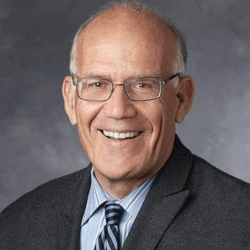Victor Davis Hanson | Real Name, Bio, Age, Net Worth And Life Style
One of America’s most well-known and prolific historians, Victor Davis Hanson, grew up in Selma, California, on a farm. His parents, a school administrator and one of the first female judges in California, made sure he and his brothers put in a lot of effort. If they observed you lounging around, they would ask what you were doing. Hanson’s ears are still ringing with that question.
He also gained knowledge on the farm in the areas of farming, scholarship, teaching, and media. I consider my entire career to be one thing. I grew up on a farm, and my parents and grandparents instilled in me a melancholy outlook on life.
The eight years I spent studying the classics both domestically and abroad, as well as the twenty years I spent teaching them, all reinforced the idea that human nature was constant and the human experience predictable. The lesson kept coming back in different forms, whether it was through working on a farm or studying Sophocles or Thucydides: Nothing really changes.
Hanson, who was born in 1953, initially wanted to be a lawyer, but he found himself drawn to the classics at the University of California, Santa Cruz. He was awarded a PhD grant to Stanford, where he later spent two years conducting research in the late 1970s. However, after obtaining his PhD, he “realised that there wasn’t a lot of work for a classicist.” He adds that because his grandfather had already passed away, “I just went back and worked on the farm.”
But Hanson’s research has already provided a critical understanding of ancient Greek life. His dissertation was read by Italian classicist Emilio Gabba, who also arranged for its publishing. My wife called me while I was operating a tractor and said, “Some guy is on the phone and wants to publish your thesis. I urged him to forget it when he demanded $2,000 to cover the expenses. The publication of Warfare and Agriculture in Classical Greece was made possible by their later waiver of the charge.
Classicists believed that because ancient armies routinely damaged orchards and vineyards, war in the Greek city-states caused hunger. Hanson was aware of the rigorous labour needed to remove vineyards and cut down trees. He questioned what could be done with such crude equipment. I made an effort to put myself in their shoes and highlight how physically demanding living was in the ancient world. His dissertation launched a thorough reconstruction of conflict in classical Greece, followed by The Western Way of conflict in 1989 and The Other Greeks in 1995.
According to Yale University classicist and NEH Jefferson Lecturer Donald Kagan, “Hanson’s work on the role of the small family farmer in the development of democracy is the most important work in Greek history in my lifetime.” “That story was never told before by Hanson, and its importance cannot be overstated.”
Early in the 1980s, when the cost of raisins dropped by two thirds, Hanson found himself out of a job. He took a drive over to Cal State Fresno, the closest university, and offered his assistance. He began by instructing Latin classes and ultimately founded a department.
According to him, CSU Fresno enrols a sizable proportion of underprivileged and minority students. When a Hispanic student still had student loans to pay off, a job to hold down, and his family couldn’t see any connection between reading Aeschylus and success, we had to convince him to devote a thousand hours a year studying Greek. However, one does not always need to be skilled in a certain occupation to succeed in society. Your ability to reason, talk, and write clearly will determine whether you succeed or fail. We have a model for this kind of mastery in the Greeks. Classical principles are useful, and they will broaden your understanding across all subject areas.
Hanson kept up his writing as well. He authored books on the classics, agriculture, immigration, and war in particular. My agency persuaded me to choose The Western Way of War over other writings on rural life because of how well it sold. From Salamis through Tet, nine conflicts were reviewed in Carnage and Culture, which sought to explain why Western armies had prevailed in each. After the 9/11 terrorist attacks, it became a best seller, making the classics professor into a highly sought-after public commentator on politics and war. After leaving CSU Fresno in 2004, he now regularly publishes editorials, essays, and even a blog.
Regarding our civilization, Hanson is not optimistic. “I don’t see nearly enough individuals speaking up in support of the West. We are unaware of how fragile its heritage is and how it must be passed down from one generation to the next. We know the conditions that must exist for man to be saved from himself, thus it is comforting to know that man’s nature does not alter. A system of counselling through the inherent dangers of human nature and behaviour is the heritage of the West.
What the National Humanities Medal is about
The National Humanities Medal, established in 1997, recognises people or organisations whose contributions have advanced knowledge of the humanities in the country and increased citizens’ interest in philosophy, history, literature, and other humanities-related fields. Each year, up to 12 medals may be given out.





